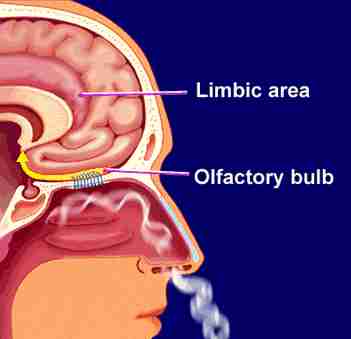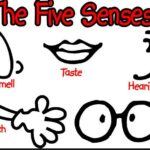We often think of branding and marketing as a visual and auditory experience. We obsess over colors, logos, fonts, jingles, and voiceovers. But one of the most emotionally powerful tools in your branding toolbox is often overlooked—smell.
That’s right. Your nose might be your most effective sales weapon.
Our five primary senses—sight, sound, taste, touch, and smell—work together to shape our perceptions. But when it comes to stirring up memories and emotions, the sense of smell wins hands down. Research has shown that smell can increase memory recall by 10–50% when tied to an experience. If you’ve ever walked into a movie theater and suddenly craved popcorn, it’s not because you saw it—it’s because you smelled it. And that smell transported your brain to countless past memories of sitting in a theater, watching a film, and crunching away on a buttery bucket.
Starbucks Knows What It’s Doing
If you’ve ever walked into a Starbucks, you’ve experienced this in action. The smell of coffee—sometimes with hints of vanilla, caramel, or pumpkin spice—hits you immediately. It’s not accidental. Starbucks carefully manages the aromas in its stores to reinforce its brand and emotional connection with customers. The company even made operational decisions like banning the warming of breakfast sandwiches at one point because the smell of egg and cheese interfered with the coffee aroma that was core to their brand identity.
They understand what science tells us: the olfactory bulb, the part of the brain that processes smell, is part of the limbic system—the part of the brain most closely associated with emotion and memory. It has direct access to the amygdala (which governs emotional processing) and the hippocampus (which manages memory and associative learning). That’s why a smell can instantly bring back a vivid memory or feeling—even more powerfully than a picture.
Smells Stick with You
Think about it: the smell of coconut might transport you to a beach vacation. The scent of chlorine might remind you of summer afternoons learning to swim at the YMCA. Leather might make you think of a new car or your grandfather’s chair. These associations are not random—they are deeply rooted in the structure of our brain.
As a business owner, you can either:
- Create a new scent association with your brand (like Cinnabon does with its overpowering, irresistible bakery smell in malls), or
- Tap into existing positive scent memories your customers already have.
Real-World Applications for Small Businesses
You don’t have to be Starbucks or Cinnabon to put scent marketing to work. Here are a few ways small businesses can leverage smell in branding:
- Retail stores: Use candles or diffusers to create a signature scent that customers associate with your space.
- Salons or spas: Lavender or eucalyptus scents can promote relaxation and reinforce the service you’re offering.
- Real estate professionals: The smell of fresh-baked cookies or clean linen can make a house feel like home.
- Auto repair or detailing shops: The scent of “new car” can make an older car feel refreshed and well cared for.
- Food trucks or stands: Position grills or fryers strategically so passersby catch a whiff of deliciousness.
If you run an online business, this might seem tricky. But even packaging can be scented. Think of high-end brands like Abercrombie & Fitch that scent their shopping bags—or subscription box services that infuse tissue paper or packaging with a branded aroma.
Smell as an Anchor for Brand Recall
Neuromarketing studies show that people are 100 times more likely to remember something they smell than something they see, hear, or touch. And while sound and visuals require conscious processing, scent often works subconsciously. That makes it a stealthy but powerful emotional anchor.
One tip for using scent intentionally: consistency is key. Choose a scent that aligns with your brand values or customer experience and stick with it. Just as your visual branding stays consistent across platforms, your scent should be a recognizable part of your physical or product-based experience.
The Emotional Connection = Loyalty
Since smell taps directly into the emotional brain, it helps you forge a stronger bond with your customers. When a customer feels emotionally connected to your brand, they’re more likely to return, recommend you to others, and remain loyal even when competitors offer discounts or deals.
Related Post: The Power of Emotion: Why You Should Always Sell the Sizzle, Not the Steak
Consider how powerful that can be. If your brand smells like happiness, like calm, like energy, like success—customers will want to relive that experience again and again.
A Personal Reflection
In my own life, I’ve been surprised how smell triggers unexpected memories. The smell of pine takes me back to camping in the mountains. Gasoline and leather remind me of working on cars and motorcycles with my boys. It’s a reminder that we don’t just remember facts—we remember feelings. And brands that can make us feel something? They win.
So, don’t just focus on what your business looks and sounds like.
Ask yourself: What does your business smell like?
What scent could you associate with your business that customers would instantly remember and emotionally connect with?












